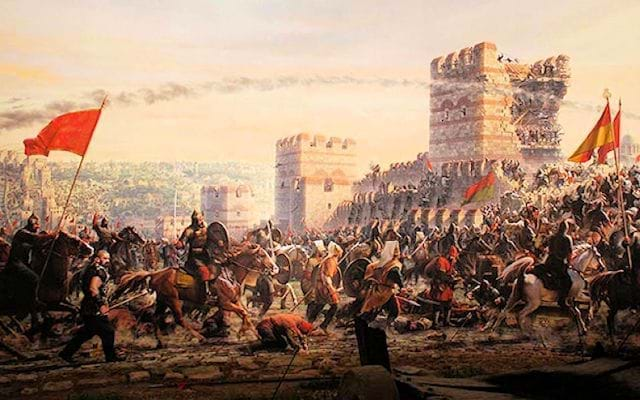
The Fall of Constantinople
The Fall of Constantinople marked the end of the Byzantine Empire. After ten centuries of wars, defeats, and victories, the Byzantine Empire came to an end; on 28 May 1453 the siege and capture of the magnificent Christian city of Constantinople, to the forces led by the Ottoman Turkish Sultan, Mohammed (Mehmet) II saw its demise. A dark day marked in history, the invading Ottomans defeated the army commanded by the Byzantine Emperor after a 53-day siege.
In its prime, Constantinople had become a great center of learning, and in it were copies (perhaps even original autographs) of manuscripts long since lost. Constantinople had been thoroughly Greek, using a Koine-Greek Bible for over a thousand years. There were many people in Constantinople at that time who were competent in the Koine-Greek language. The city’s fall in 1453 moved such people to flee Constantinople for Europe and bringing with them a literary, linguistic and cultural legacy. Although many manuscripts were rescued by these Byzantine refugees, a great number were lost forever.